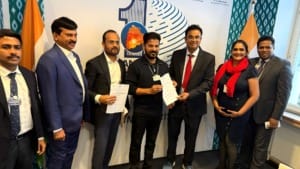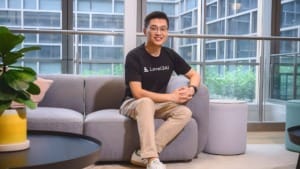Singapore pushes for AI fluency to boost workforce competitiveness
Singapore is urging workers to become fluent in AI, with new training pathways and government support to boost workforce skills.

Fluency in artificial intelligence (AI) is set to become an essential skill for workers in Singapore, as the Government emphasises the need for professionals across all sectors to embrace AI. Minister for Digital Development and Information Josephine Teo likened AI to a “national language”, complementing workers’ existing expertise, which she described as their “mother tongue”.
“We believe that such bilingual AI talents will be highly valued, and building them up represents a real opportunity for Singapore. They will be pathfinders and pace-setters for meaningful AI adoption everywhere,” Mrs Teo said on 29 August at the Tech3 Forum 2025, held at The Ritz-Carlton, Millenia Singapore.
The push for AI fluency reflects a broader government strategy to strengthen Singapore’s position in a rapidly expanding digital economy. Prime Minister Lawrence Wong recently highlighted AI as a “game changer” during his National Day Rally speech, pledging support for enterprises of all sizes to harness AI effectively while safeguarding jobs for citizens.
Mrs Teo stressed that AI adoption is not limited to technology professionals. She explained that meaningful deployment of AI solutions requires collaboration between tech specialists and professionals from other fields, as seen in accounting firm PwC’s AI-driven tax filing tool, which was developed with input from tax experts.
Upskilling workers across all sectors
To help workers outside of tech roles gain AI knowledge, the Government will use the TechSkills Accelerator (TeSa), a flagship training initiative launched in 2016 that has already trained 340,000 individuals. Through TeSa, the Infocomm Media Development Authority (IMDA) will work with professional bodies in fields such as accounting and marketing to identify processes that can be optimised through AI.
Mrs Teo encouraged professionals to adopt a growth mindset, focusing on how AI can expand their value rather than replace their contributions. She cited financial forensics specialists as an example, noting that AI tools could enable them to prevent fraud and explore new opportunities, including ethical hacking.
The tech sector itself, which now employs 214,000 workers, will also benefit from increased AI expertise. IMDA is collaborating with industry leaders to launch new programmes that will develop talent in areas closely linked to AI, including cloud computing.
New training pathways for cloud talent
Cloud computing is seen as the backbone of AI technology, and demand for skilled professionals in this field is expected to rise significantly. Edward Chen, vice-president of the Singapore Computer Society (SCS), emphasised that cloud expertise will be vital across industries, not just among large technology providers like Microsoft, Google and Amazon, but also for enterprises building their own digital infrastructure.
One of the initiatives announced at the forum is the Skills Pathway for Cloud, a programme developed by SCS with IMDA and SkillsFuture Singapore. Working with 14 organisations, including DBS Bank, ST Engineering and the Home Team Science and Technology Agency, the programme will prepare participants for four entry-level cloud roles. The two-level training pathway offers internship opportunities for those completing the first level and potential full-time positions for those finishing the second. A similar cybersecurity pathway introduced in July 2024 has already placed 180 individuals in jobs or internships.
SCS is also partnering with Amazon Web Services (AWS) and training provider Trainocate to launch the AWS Career Launchpad with Trainocate. This initiative aims to train 100 participants by 2027 in roles such as solution architect, software developer and AI or machine learning engineer. The six- to 12-month programme includes placements with AWS Partner Network companies and offers certifications that can contribute towards a bachelor’s degree through the Singapore Institute of Technology’s Competency-based Stackable Micro-credential Pathway.
Chen, who also chairs the SCS Skills Pathway, said the programmes aim to meet industry needs while improving job prospects. “Most importantly, we can help more Singaporeans to secure quality jobs and address the sector’s skills gap,” he said.
















